After facing mounting pressure, Most Rev Justin Welby has become the first Archbishop of Canterbury ever to resign. Tim Wyatt has the full story
The 105th Archbishop of Canterbury, Most Rev Justin Welby, has resigned. In a statement, the archbishop said he took “personal and institutional responsibility” for the Church of England’s safeguarding failures.
The news came after the Makin report, a damning investigation into an abuse scandal surrounding John Smyth. A resulting petition calling for Welby’s resignation garnered more than 13,000 signatures in just three days. Several leading clerics also called for him to step down, including Rt Rev Dr Helen-Ann Hartley, Bishop of Newcastle, who said the archbishop’s position had become “untenable”.
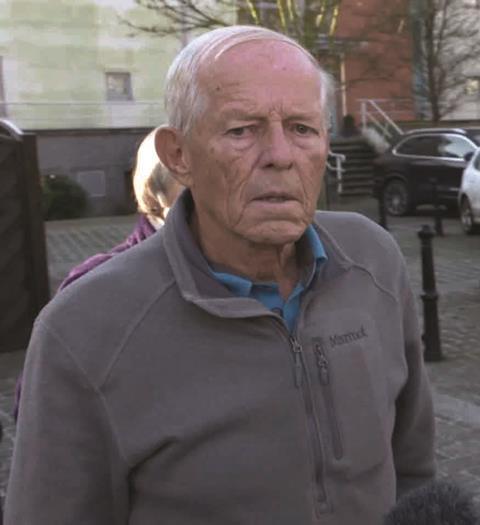
Why did he go?
Decades earlier, a much younger Justin Welby met an influential Christian lawyer named John Smyth when they both attended the conservative evangelical Iwerne youth summer camps for boys from elite public schools. Behind closed doors, Smyth was grooming young men he met through the camps. Once he had brought them into his inner circle, he would force them to submit to vicious semi-naked beatings with a cane in his garden shed, leaving them bloodied, bruised and traumatised.
Welby and Smyth were never especially close, and the future archbishop was not one of the lawyer’s victims. But Welby’s relationship with the abuser – who was not publicly unmasked until a Channel 4 News investigation in 2017 – eventually became the focus of intense scrutiny.
The long-overdue independent investigation into the Smyth scandal, written by safeguarding expert Keith Makin, was leaked to the press in early November. It revealed concerted efforts to cover up Smyth’s crimes in the early 1980s by a small cabal of conservative evangelical vicars who led the Iwerne camps.
In 1982, one victim was so brutalised by Smyth’s treatment he attempted to kill himself to escape the incessant and sexualised beatings. This prompted a small clutch of Iwerne leaders to write up a report which detailed graphically what their prominent volunteer had been doing.
A petition calling for Welby’s resignation garnered more than 13,000 signatures in just three days
But rather than hand over the report to the police, they quietly forced Smyth to stand down from Iwerne, fearing public exposure would ruin the reputation of the ministry and stop parents sending their teenagers to learn about Jesus. Smyth ultimately left the UK and relocated to Zimbabwe, where he set up new camps for public schoolboys, and began a fresh cycle of violent abuse there.
The Makin report follows the confused – and tepid – efforts by some of these leaders to warn other evangelicals against working with Smyth, but they failed to properly pass on their concerns to the relevant authorities until it was too late. In the early 1990s, a 16-year-old boy died in one of the Zimbabwe camps. Smythe was charged and put on trial in 1997, but the case collapsed without resolution.
By the early 2010s, Smyth had resettled in South Africa, and was a prominent youth volunteer at his Cape Town church, forming inappropriately intense relationships with teenage boys. Meanwhile, one anonymous victim in the UK began writing to other victims, and to the charity which now ran the Iwerne camps, about Smyth’s abuse. Eventually, a report was made to the CofE safeguarding authorities and reached Lambeth Palace. Again, there was a confused and half-hearted effort to investigate. Finally, the matter was referred to several police forces, and enquiries made with Anglican counterparts in South Africa about Smyth.
The police launched a full investigation in 2017 following the Channel 4 investigation, but before Smyth could be extradited back to Britain, he died.
Open secret
These are the facts, documented in the 253-page Makin report, which draws on hundreds of interviews and thousands of documents to show how horrific Smyth’s abuse was, but also how many missed opportunities there had been to expose him and prevent further harm.
Makin is scathing about the small group of Iwerne leaders who knew what Smyth was doing from 1982. This group orchestrated a cover-up, he argues, preventing what they knew from reaching the police.
But the Smyth revelations were also an “open secret”. Makin documents how a litany of famous evangelical names were told in various ways about the abuse (mostly in an effort to stop them from working with Smyth or to explain his sudden disappearance from the Iwerne camps). Figures include: Michael Green at St Aldates in Oxford, Richard Bewes at All Souls in London and George Carey, then principal of Trinity Theological College in Bristol, but soon to become Archbishop of Canterbury.
Most seriously, David Fletcher, who ran the Iwerne camps before becoming the long-time rector of St Ebbe’s in Oxford, knew everything, but believed the ministry of the camps should be protected above seeking justice for the victims. He explicitly told Makin in an interview before he died in 2022: “I thought it would do the work of God immense damage if this were public.”
Fletcher’s brother Jonathan, another famous conservative evangelical vicar, was recently exposed for spiritual and emotional abuse of younger men.
What did Welby know and when?
When the Smyth story broke in 2017, Welby was apologetic but insisted he had no real relationship with Smyth (he wrongly said Smyth was not even an Anglican). He maintained that he knew nothing of the abuse until after he became archbishop.
One unnamed person told Makin they overheard snippets of a “grave” conversation between Welby and another evangelical vicar in 1978 about Smyth, but the archbishop said he has no recollection of this. He did, however, bump into Smyth and some of his victims in the early 1980s in Paris, where Welby was then working. Welby’s vicar at the time warned him that Smyth was a bad man, without giving any details.
Throughout the 1980s Welby exchanged Christmas cards with his old Iwerne leader and donated to his ministry in Zimbabwe, which the archbishop said were acts of politeness towards an old acquaintance. He then lost touch with Smyth for decades, until reports from victims reached Lambeth Palace in 2013. It was then that Welby says he first realised Smyth was an abuser.
Welby made a series of incorrect claims in interviews in 2017, including that a crime had already been reported to the police (it had not, despite several botched interactions with different forces) and that he’d never heard any suspicions around Smyth (given what Welby’s vicar in Paris told him in the early 80s, he had). He also pledged to meet with victims but failed to do so for four years.
Makin criticised the archbishop for not pushing harder post-2013 to ensure Smyth was reported to the police and victims were properly supported by church safeguarding teams. His report concluded that the CofE as a whole lacked curiosity about the progress of their referrals (both to the police and to the Church authorities in South Africa) and did not properly look after victims.
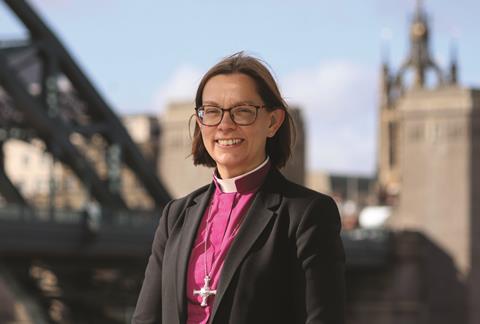
A second apology
When the Makin report was released, Welby again apologised. However, this did not assuage those who thought he should resign over his personal failures and the Church’s collective mistakes. The trickle of priests demanding his resignation online gradually became a stream. Three prominent clergy from very different wings of the Church came together to start a petition publicly calling for Welby to step down. “Given his role in allowing abuse to continue, we believe that his continuing as the Archbishop of Canterbury is no longer tenable”, the petition stated. “We must see change, for the sake of survivors, for the protection of the vulnerable and for the good of the Church.”
His defenders argued that Welby was not a prominent figure in the 1980s when Smyth was an open secret and, while he did not cover himself with glory post-2013, neither did he ignore the reports that reached Lambeth Palace. He was assured that the local bishop in Cambridgeshire was on the case, that referrals had been passed to South Africa, and that the police were investigating (all three were, in fact, only partly true).
But this did not stop the increasing pressure. A series of newspaper columns – and later front pages – concluded he should stand down. Most seriously, Helen-Ann Hartley, Bishop of Newcastle, came out as the most senior Anglican figure to call for his resignation. In an interview with the BBC, Hartley also concurred that Welby’s position was “untenable” and that, without him standing down, the CofE could not regain its credibility or “moral voice” to speak against abuse. “I think rightly people are asking the question: ‘Can we really trust the Church of England to keep us safe?’ And I think the answer at the moment is ‘no’,” she said.
Shortly afterwards, in a shocking escalation, Hartley published a private letter from Welby and Rt Rev Stephen Cottrell, Archbishop of York, online. This concerned a separate, long-running safeguarding issue around Cottrell’s predecessor, John Sentamu, who was suspended from retirement ministry by Hartley over his response to a different review. It is almost unheard of for a sitting senior bishop to describe the archbishop’s role as “untenable”, let alone leak private letters that effectively labelled her bosses as “coercive” and “dysfunctional”.
Courting controversy
It was hardly the first time that calls had been made for Welby to resign – similar ones had come just two weeks earlier when he told ‘The rest is politics’ podcast that sex is permissible within “a committed relationship, whether its straight or gay”. Then, critics accused him of abandoning historic Church teaching, but Welby stayed on. This time, ultimately, the combined pressures from voices from almost all the tribes and factions within the Church – as well as considerable mainstream media interest around the Smyth scandal – proved too much.
In his resignation statement Welby said: “It is very clear that I must take personal and institutional responsibility.
We must see change, for the sake of survivors, for the protection of the vulnerable and for the good of the Church
“I hope this decision makes clear how seriously the Church of England understands the need for change and our profound commitment to creating a safer church. As I step down I do so in sorrow with all victims and survivors of abuse.”
But if Welby had hoped to draw a line under the scandal, his unprecedented resignation has failed to do so. Some Smyth survivors and safeguarding activists have now moved on to demand other bishops and vicars named in the Makin report quit as well.
And the crisis is also moving beyond the walls of the Anglican Church: PJ Smyth, John Smyth’s son, was himself a prominent evangelical pastor and preacher within the Newfrontiers movement. But the younger Smyth was forced out of the church he led in the US in 2021 after a report concluded he had failed to properly report what he knew about his dad. Last month, he gave an emotional interview to Channel 4 News revealing he had also been physically abused by his “master manipulator” father.
Who will be the next archbishop?
The process of choosing the next Archbishop of Canterbury is likely to take months.
The Crown Nominations Commission, which consists of 17 members and must agree with a two-thirds majority, will shortlist and interview candidates before eventually making a recommendation to the prime minister. The PM must then forward the name to King Charles, who is the supreme governor of the Church of England and formally makes the appointment. Predicting the next archbishop is notoriously difficult – Welby himself was a famously left-field choice. A number of names are expected to be in the running, however, including:
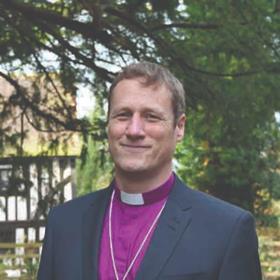
Rt Rev Martyn Snow
Bishop of Leicester
Born in Indonesia and having previously worked in West Africa, Snow has a background in the global Church. He has worked to combat homelessness and is overseeing the CofE’s target to raise up 30,000 new children’s and youth leaders by 2030. He is the lead bishop for Living in Love and Faith (LLF), the CofE’s attempt to “journey together” on debates over sexuality. Given Snow abstained from a vote on blessings for gay couples, some hope he will be able to hold the CofE together in unity.
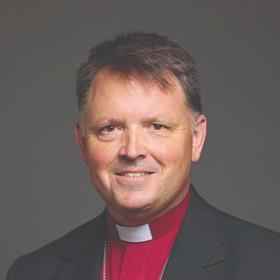
Rt Rev Graham Usher
Bishop of Norwich
The lead bishop on the environment studied ecological science at the University of Edinburgh and theology at Corpus Christi College, Cambridge. The keen beekeeper is patron or president of 25 charities and is married to Rachel, a GP. Usher is in favour of blessing same-sex couples in church.
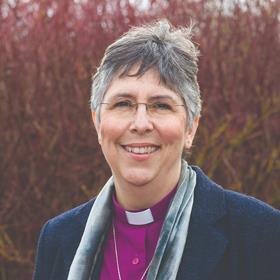
Rt Rev Dr Guli Francis-Dehqani
Bishop of Chelmsford
Francis-Dehqani was ordained in 2017, just three years after the first woman bishop was appointed. She was born in Iran and has spoken about her brother’s murder in the aftermath of the Iranian Revolution, which prompted her family to flee to Britain. When profiled in last month’s Premier Christianity, Bishop Guli lamented the polarised nature of our national debates and advocated an approach which looks at “the grey space within the binaries”. If selected, she would be the first-ever female Archbishop of Canterbury.







































No comments yet